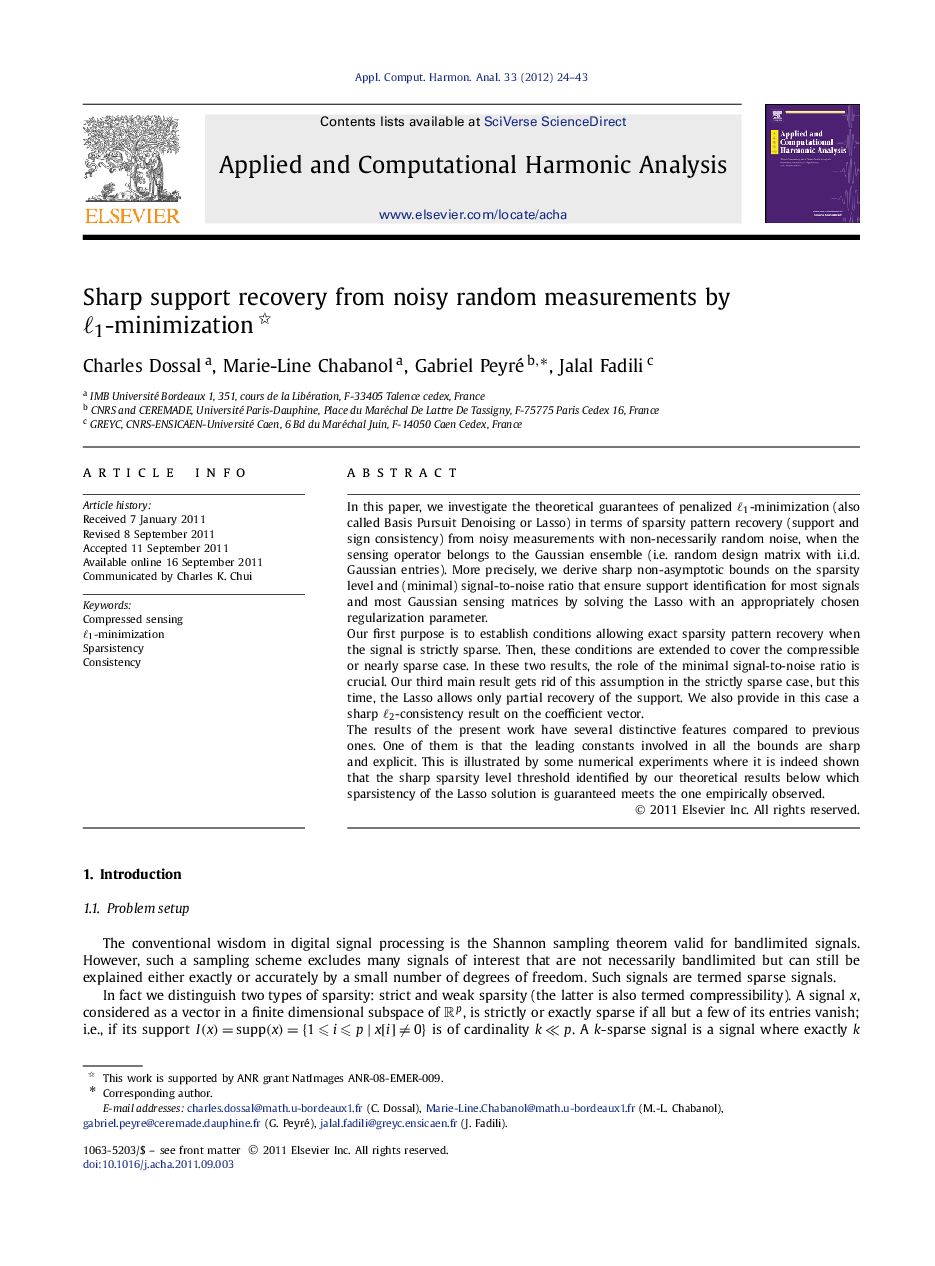| Article ID | Journal | Published Year | Pages | File Type |
|---|---|---|---|---|
| 4605334 | Applied and Computational Harmonic Analysis | 2012 | 20 Pages |
In this paper, we investigate the theoretical guarantees of penalized ℓ1-minimization (also called Basis Pursuit Denoising or Lasso) in terms of sparsity pattern recovery (support and sign consistency) from noisy measurements with non-necessarily random noise, when the sensing operator belongs to the Gaussian ensemble (i.e. random design matrix with i.i.d. Gaussian entries). More precisely, we derive sharp non-asymptotic bounds on the sparsity level and (minimal) signal-to-noise ratio that ensure support identification for most signals and most Gaussian sensing matrices by solving the Lasso with an appropriately chosen regularization parameter.Our first purpose is to establish conditions allowing exact sparsity pattern recovery when the signal is strictly sparse. Then, these conditions are extended to cover the compressible or nearly sparse case. In these two results, the role of the minimal signal-to-noise ratio is crucial. Our third main result gets rid of this assumption in the strictly sparse case, but this time, the Lasso allows only partial recovery of the support. We also provide in this case a sharp ℓ2-consistency result on the coefficient vector.The results of the present work have several distinctive features compared to previous ones. One of them is that the leading constants involved in all the bounds are sharp and explicit. This is illustrated by some numerical experiments where it is indeed shown that the sharp sparsity level threshold identified by our theoretical results below which sparsistency of the Lasso solution is guaranteed meets the one empirically observed.
